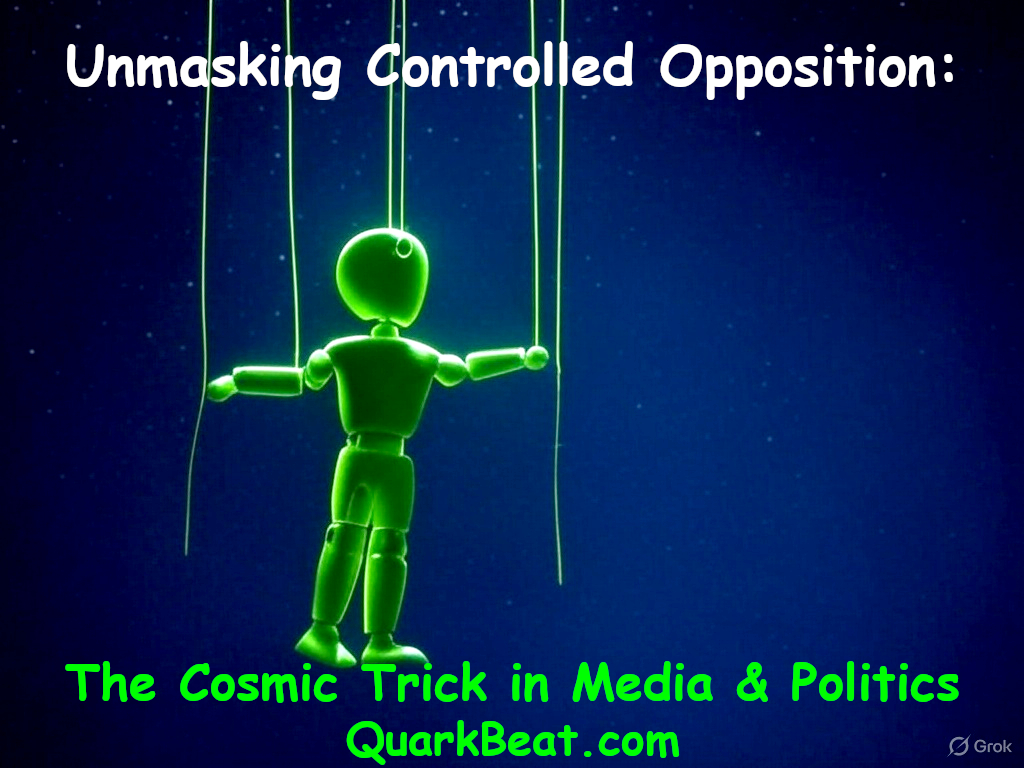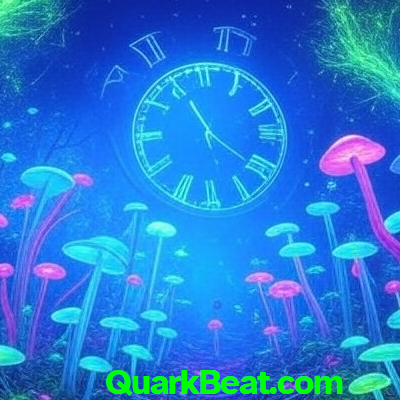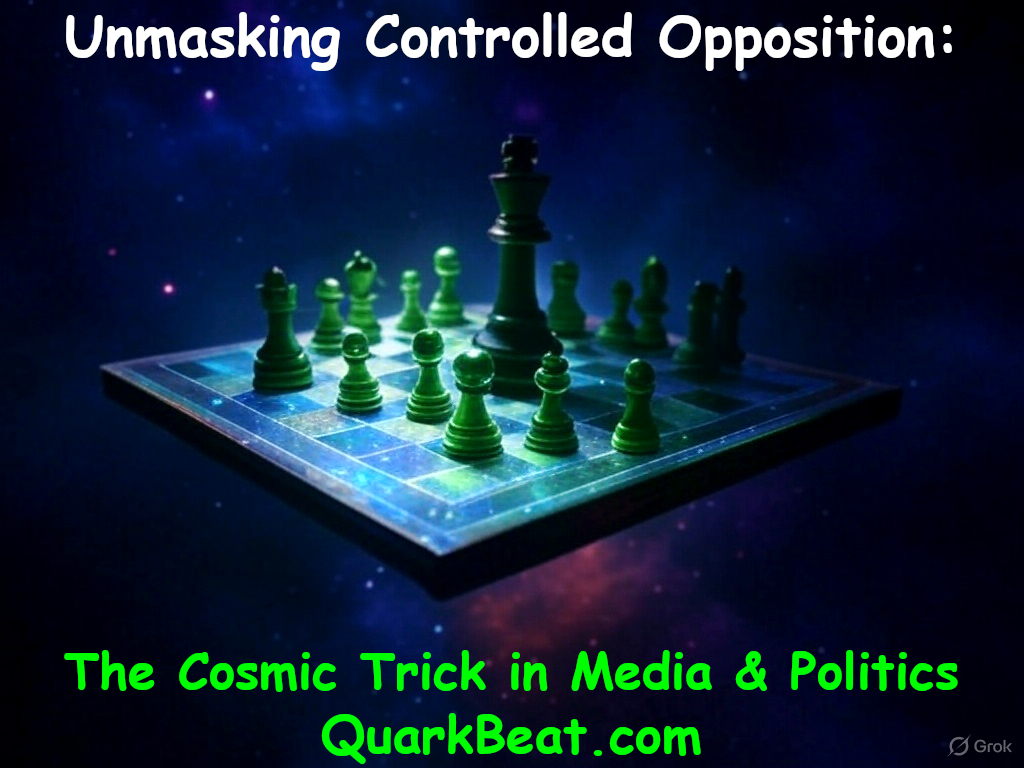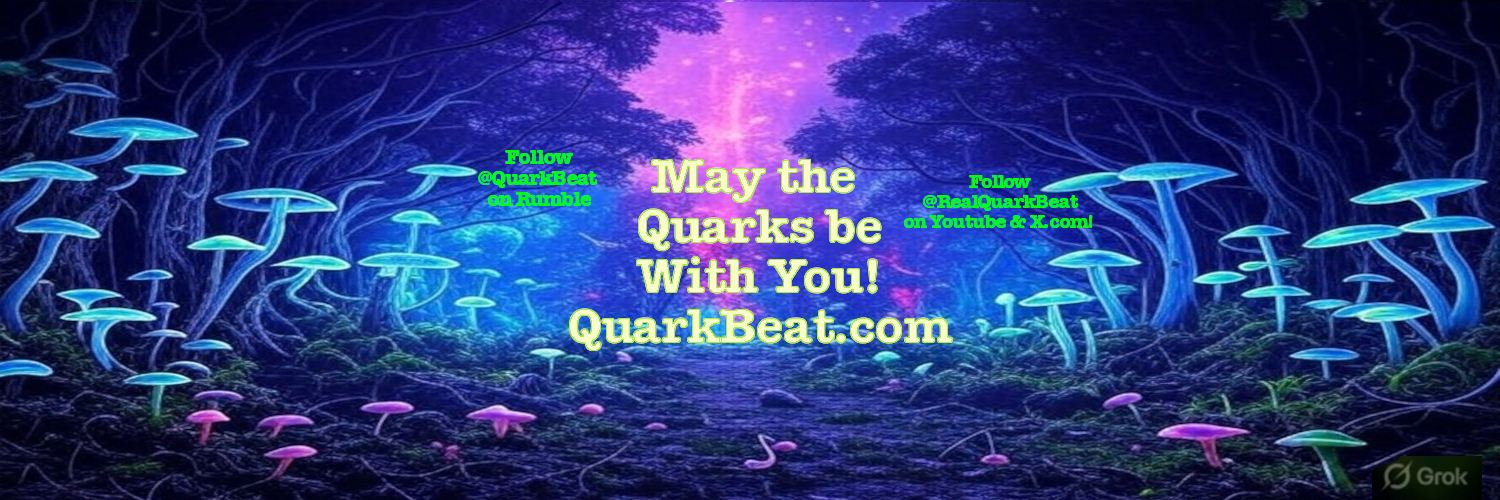Controlled Opposition: The Cosmic Trick Hiding in Media and Politics.
Zoom into the cosmos with this Guide to How to Vote in Commonwealth of Australia Elections!
Ever wonder if the “rebels” shouting on TV, X, or campaign trails are secretly working for the system they claim to fight? Welcome to controlled opposition, a sneaky cosmic trick where fake dissent keeps power in check. This article breaks it down for QuarkBeaters new to the political galaxy, with hard-hitting definitions and quotable wisdom to share. Buckle up and learn how the establishment plays the opposition game!
Definition of Controlled Opposition (Media and Politics)
Controlled opposition refers to a strategy where an individual, group, or entity appears to oppose or challenge a dominant power, ideology, or system (e.g., government, political party, or media narrative) but is secretly controlled, influenced, or funded by that same power. The purpose is to manipulate public perception, neutralize genuine dissent, or steer opposition into ineffective or harmless channels, thereby maintaining the status quo.
In media and politics, controlled opposition often manifests as:
- Media Figures or Outlets: Pundits, journalists, or news platforms that seem to criticize the establishment but subtly reinforce its core narratives or avoid sensitive topics. For example, a media outlet might loudly oppose a political party on minor issues while ignoring deeper systemic corruption tied to that party’s allies.
- Political Actors: Politicians, activists, or movements that pose as outsiders or reformers but are covertly aligned with the ruling elite. They may rally public support with populist rhetoric, only to divert energy away from meaningful change or sabotage genuine opposition efforts.
- Distraction or Division: Controlled opposition can create fake controversies or amplify divisive issues to distract from critical topics (e.g., focusing on cultural debates while economic policies go unchallenged).
- Gatekeeping: These entities may set boundaries on acceptable dissent, ensuring criticism stays within limits that don’t threaten the power structure.
Key Characteristics
- Appears Authentic: The opposition seems credible, often using strong rhetoric or appealing to disenfranchised groups.
- Limited Impact: Their actions or critiques rarely lead to substantive change or challenge the core power structure.
- Selective Criticism: They avoid taboo subjects or protect certain interests aligned with the establishment.
- Controlled Outcomes: Their efforts may channel public anger into dead-end solutions, like voting for pre-approved candidates or supporting ineffective policies.
Examples in Context
- Media: A news outlet might criticize a government’s foreign policy but never question the underlying motives of the military-industrial complex, thus keeping public debate within “safe” bounds.
- Politics: A politician campaigns as an anti-establishment rebel but, once elected, supports legislation that aligns with the elite’s agenda, revealing their role as a controlled figure to absorb and deflate populist momentum.
Why It Matters
Controlled opposition undermines trust in media and political systems by blurring the line between genuine dissent and orchestrated performance. It can confuse the public, dilute grassroots movements, and protect entrenched power by ensuring that real challenges never gain traction.
Quotes on Controlled Opposition in Media and Politics
Vladimir Lenin (attributed): “The best way to control the opposition is to lead it ourselves.”
Context: This quote, often attributed to Lenin, encapsulates the idea of controlled opposition by suggesting that the most effective way to neutralize dissent is to infiltrate and steer it. It’s frequently cited in discussions of political and media manipulation, though its exact origin is debated.
Urban Dictionary (Anonymous): “A controlled opposition is a protest movement that is actually being led by government agents. Nearly all governments in history have employed this technique to trick and subdue their adversaries.”
Context: This definition highlights the historical use of controlled opposition by governments to undermine genuine protest movements, particularly relevant in political contexts where media amplifies or suppresses narratives.
Noam Chomsky: “Propaganda is to a democracy what the bludgeon is to a totalitarian state.”
Context: From Media Control: The Spectacular Achievements of Propaganda, Chomsky discusses how media in democratic systems subtly controls public opinion, often by promoting figures or outlets that seem oppositional but align with establishment goals, a hallmark of controlled opposition.
George Orwell: “The process [of mass-media deception] has to be conscious, or it would not be carried out with sufficient precision, but it also has to be unconscious, or it would bring with it a feeling of falsity and hence of guilt... To tell deliberate lies while genuinely believing in them, to forget any fact that has become inconvenient, and then, when it becomes necessary again, to draw it back from oblivion for just so long as it is needed, to deny the existence of objective reality and all the while to take account of the reality which one denies—all this is indispensably necessary.”
Context: From 1984, this quote describes the psychological mechanisms behind media manipulation, which can include controlled opposition tactics where outlets or figures appear to challenge the system while reinforcing it.
Lance Morcan: “Manipulating the media is akin to poisoning a nation’s water supply—it affects all of our lives in unimaginable ways.”
Context: From The Orphan Conspiracies, this quote underscores the pervasive impact of media control, including the use of controlled opposition to shape public perception and neutralize dissent.
Louis Yako: “The fact that Fox news condones or glorifies Trump’s deeds or those of his supporters, while CNN supposedly bashes him or his supporters doesn’t necessarily indicate that these two channels, both controlled by the wealthy, are divided on Trump. It is more an indication that their coverage of him and his supporters is for the purpose of keeping the American people fighting with each other instead of together against the wealthy and the powerful.”
Context: Published in CounterPunch (June 23, 2023), this quote suggests that major media outlets, despite appearing oppositional, may serve elite interests by fostering division, a form of controlled opposition.
Brendon Marotta: “Controlled opposition is more dangerous to a movement than open opposition. Open opposition inspires resistance, while controlled opposition is designed to absorb that resistance.”
Context: From an article on Hegemon Media (May 27, 2022), this quote emphasizes how controlled opposition undermines movements by posing as allies while sabotaging progress, particularly relevant in political activism and media narratives.
So, QuarkBeaters, now you’re armed with the knowledge to spot controlled opposition in the wild! Whether it’s a slick news anchor, a fiery politician, or a viral X post, ask yourself: Are they really shaking the cosmic order, or just orbiting the establishment’s black hole? Keep questioning, share these quotes, and dive deeper into the galaxy of truth at QuarkBeat.com!
This article was crafted with the stellar assistance of Grok x AI. Want to tap into Grok’s brainpower? Become a Premium Member at X.com!
Blast off to QuarkBeat.com for more mind-bending insights!
Follow us on X.com: @RealQuarkBeat
Principled Centrism
Principled Centrists are the neon heartbeat of reasoned compassion, standing firm in a world of polarised noise. They’re Values-Driven Moderates, rooted in life-affirming, faith-driven principles, yet fiercely independent, analysing policies with a critical eye. Positive and principled, they embody integrity and nuance, rejecting extremism for a centrist path that’s sensible and human rights-centred. As Ethical Independents, they vote conscience over party, demanding accountability in written, transparent policies. Like Faithful Pragmatists, they blend sacred values with practical compromise, sparking solutions that honour both heart and mind. Principled Centrists don’t just vote—they ignite truth, unapologetically, with a cosmic spark!






